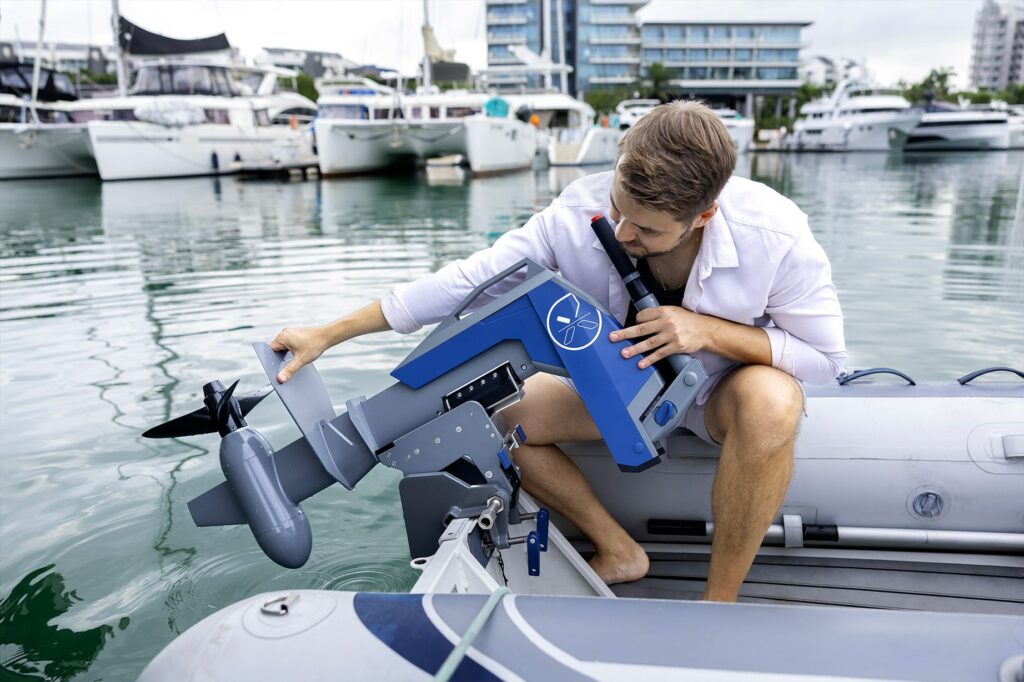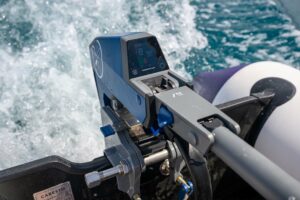A Revolution in Boating: The Rise of the Electric Marine Engine
In recent years, the boating industry has undergone a silent yet powerful revolution: the progressive shift toward electric propulsion. By 2025, this movement is accelerating, driven by a global energy transition, growing environmental concerns, and increasingly strict regulations on marine pollution. In response, more and more boat owners and boating enthusiasts are turning to electric motor solutions, suitable for both recreational and professional navigation.
The rise of electric motors in the marine world can also be explained by technological advances. Innovations in lithium batteries and electric propulsion systems now allow electric motors to compete with traditional combustion engines in terms of performance, speed, and range. The electric boat market is expanding rapidly, offering an ever-broader selection of models tailored to every type of navigation—from small tenders to large pleasure yachts.

Benefits of Electric Motors for Boaters
Switching to an electric marine motor means choosing comfort, silence, and a new kind of pleasure on the water. Unlike combustion engines, electric motors produce almost no vibrations and have a very low noise level. This makes time spent on board much more enjoyable—especially on long trips at sea or on inland waterways.
The technical advantages are just as compelling. Electric motors deliver instant acceleration, precise power control, and optimized energy consumption. Thanks to lithium or lithium-ion batteries, range has increased significantly, making these systems reliable for a variety of uses such as fishing, leisure boating, light transport, or shuttle operations. Electric propulsion also allows for greater energy efficiency and more accurate speed management, adapting smoothly to navigation conditions.
Electric Propulsion vs. Combustion Engines: What’s the Best Choice in 2025?
In 2025, the choice between a combustion engine and an electric motor has become a key question. For decades, combustion engines have dominated the market, but today they show major drawbacks: pollution, noise, high maintenance costs, and heavy fuel consumption. Electric propulsion, on the other hand, offers a cleaner, more cost-effective, and simpler alternative—without complex gearboxes or numerous moving parts.
When comparing operating costs, range, performance, and environmental impact, the balance increasingly tilts in favor of the electric motor. While the initial investment can seem higher, it’s quickly offset by lower maintenance costs, reduced energy consumption, and a longer system lifespan. For this reason, electric propulsion is fast becoming an essential trend, both for recreational boaters and marine professionals alike.

Spotlight on Momentum Electric Outboard Motors
Among the new players revolutionizing marine propulsion, the brand Momentum stands out with its high-performance electric outboard motors. Designed specifically to meet the modern boating market’s demand. Power, range, onboard technology, and environmental sustainability—these motors are ideal for rigid hulls, RIBs,and small pleasure boats.
Momentum’s motors feature next-generation lithium-ion batteries with large navigation capacity. Thanks to intelligent energy management technology, they deliver smooth and efficient electric propulsion. While allowing users to monitor consumption, speed, battery level, and other advanced features in real time. The range includes several models designed for different types of boats and intended uses, offering tailored solutions for both demanding boaters and professional users.
Limitations and Considerations Before Switching
Despite all its advantages, electric propulsion still comes with some limitations to keep in mind. One of the most debated topics remains range, though progress in lithium battery technology has been remarkable. For long-distanceor intensive use, careful route planning or hybrid solutions may still be necessary. Moreover, the number of charging stations in marinas remains limited, although expansion is well underway in many countries.
The initial cost of an electric marine motor can also deter some buyers, especially for premium models. However, when considering long-term value, the quality-to-price ratio remains highly favorable. Some technologies are still evolving and may require regular updates, so it’s crucial to research different models, their performance, and their compatibility with your boat type (outboard, tender, etc.) before making the switch.

Why 2025 Is a Turning Point for Electric Boating
The year 2025 marks a true turning point for the boating industry. With regulatory pressure, pollution-reduction goals, and a shift in public mindset, electric propulsion has become the preferred solution for most boaters and boat owners. Brands such as Momentum, Torqeedo, and ePropulsion are reshaping the market with increasingly powerful electric motors.
This trend is supported by a growing range of technological options, improved energy efficiency, and a shared awareness of environmental challenges. In 2025, adopting an electric marine motor means anticipating future needs, improving onboard comfort. Reducing your ecological footprint, and enjoying smoother, quieter, and more cost-effective navigation. It’s a forward-thinking choice—practical, sustainable, and economically sound.
Conclusion: Navigating the Future with Electric Propulsion
Switching to electric marine motors in 2025 is no longer just a trend—it’s a natural transition toward sustainable boating. Whether driven by performance, comfort, environmental awareness, or operating cost, electric boats and electric outboard motors such as those from Momentum represent a real alternative to traditional combustion engines.
Today, boaters, owners, and industry professionals must embrace this revolution in propulsion to navigate smarter. In harmony with their lifestyle, the environment, and their passion for the sea.



